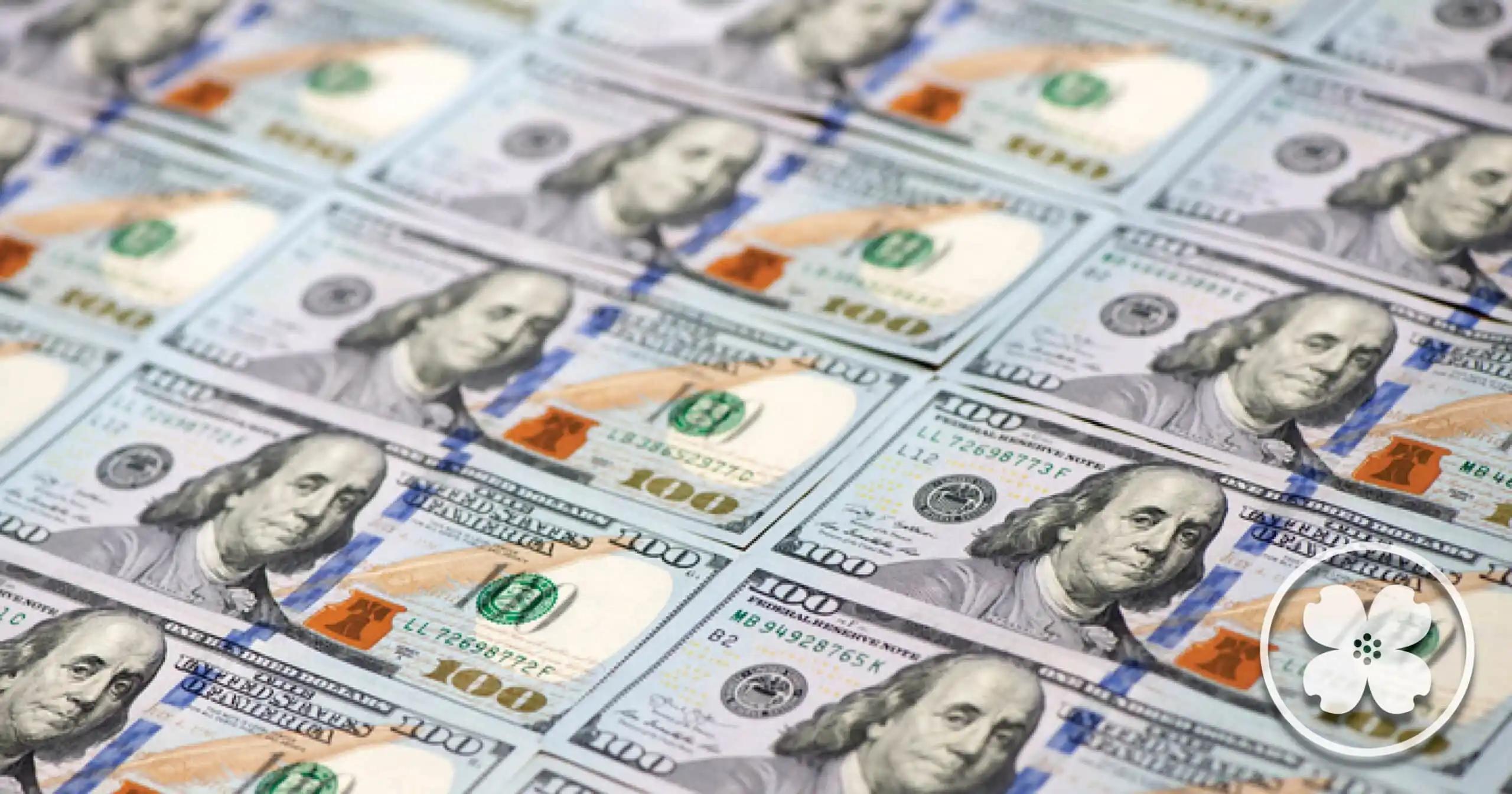Discover helpful strategies “sandwich-ers” can utilize when providing assistance and guidance to those they care about, while also balancing and protecting their own financial nest eggs in this two-part series.

By Jason Flores – Executive Vice President & Chief Investment Officer
There has been a trend of pronouncing the death of the dollar on the world stage earlier this year. Along with this trend, there has also been a rise in fear regarding quality of life and what the death of the dollar will mean for U.S. citizens. Stoking some of these fears is the uptick in trade agreements made using native currencies of countries rather than the dollar. While no one can predict the future; the dollar is still the most dominant reserve currency in the world.
Global Dominance of the U.S. Dollar: Current Trends and Future Outlook
According to the International Monetary Fund, in the fourth quarter of 2022, the dollar represented 58.4% of all foreign exchange reserves. The Euro was second with over 20.5%. The Chinese yuan came in at 2.7%. The most recent data from the Bank of International Settlements shows the US Dollar was on one side of 88% of all trades, as of April 2022. The Euro was on one side of 30% of all trade, with the Chinese yuan accounting for 7%. Suffice to say, based on these data points and more, the dollar still remains important in the global financial system. Some pundits may point to the recent decline in the value of the dollar relative to other currencies as a sign of the dollar losing status.
While the dollar has declined since October of last year, there are two main drivers. The first is simply investors selling high and locking in gains on the currency. The second is that the U.S. is near the end of interest rate hikes while other countries are still raising rates. As interest rates in other countries become more competitive or surpass the interest rates in the U.S., investors will change the currencies that they own.
The U.S. Dollar’s Global Influence and the Push for Alternatives
The dollar’s role in the global economy has allowed our government and companies to transact more cheaply and enjoy lower costs than foreigners who use the dollar. It has also allowed the U.S. to have a large influence in global economics and politics. These are the reasons that other countries are looking for alternatives to the dollar. Global payments systems routed through the U.S. have been used to sanction a number of countries, including Russia and Iran. Also, decisions from the Federal Reserve Bank on interest rates have an impact on countries around the world. Emerging market countries typically issue debt in dollars. If the dollar moves up in value, it makes it difficult for these countries to pay debts. Commodity-producing countries suffer when the dollar strengthens. Commodity prices tend to fall when the dollar strengthens, which hurts revenue.
The difficult part of getting rid of the dollar is finding a replacement. Any reserve currency that is sponsored by a government will give that government the same leverage the U.S. currently holds. Every other current contender is backed by an entity with its own set of issues, whether the Eurozone, Japan, or China. This has led to calls for a cryptocurrency, such as Bitcoin, which is not backed by any country. Having a currency that is free from politics is a utopian idea. This doesn’t seem likely, as governments like power and control. Giving up control over currency seems to be a sure way to lose both.
Challenges to the U.S. Dollar’s Reserve Status: Political Factors and Global Shifts
The greatest threat to the dollar falling from reserve status is most likely from U.S. politics pushing people away. The frequent use of sanctions noted previously, and the current political polarization have other countries rethinking the dollar. Repeated showdowns over the debt ceiling in the last decade, and excessive levels of debt take a toll on the credibility of the dollar. Without a clear challenger to the dollar currently, the most likely path seems to be a more fragmented global payments system, with each country trying to use its own currency in more transactions. These changes typically take place over decades, not years.
There is reason to be concerned but not alarmed. The dollar’s role in the global economy has provided many benefits to the U.S.A continued erosion of dominance could see these benefits reverse. However, the fear that the dollar will fall to zero and be worthless is highly speculative and overblown. The previous global reserve currency, the pound sterling, still holds value nearly 80 years after the dollar usurped it. Other currencies have value even though many have never enjoyed reserve status. If the dollar were to fall significantly, the cost of imports would materially increase.
Potential Future Economic Paths and the Role of Precious Metals in Diversified Portfolios
The counterbalance is that goods produced domestically would be competitive in price both domestically and across the globe. There are a variety of different paths that the dollar, and global economy can take in the future. Current trade agreements may be a distant memory in five or ten years, or the trend of using different currencies could accelerate.
Some companies may hold gold and silver as a portion of their investments, specifically to act as a hedge against the dollar and a safe haven when there is turbulence in the market. While the amount of gold and silver held may change at any time, precious metals are viewed as an important part of a diversified investment portfolio.


